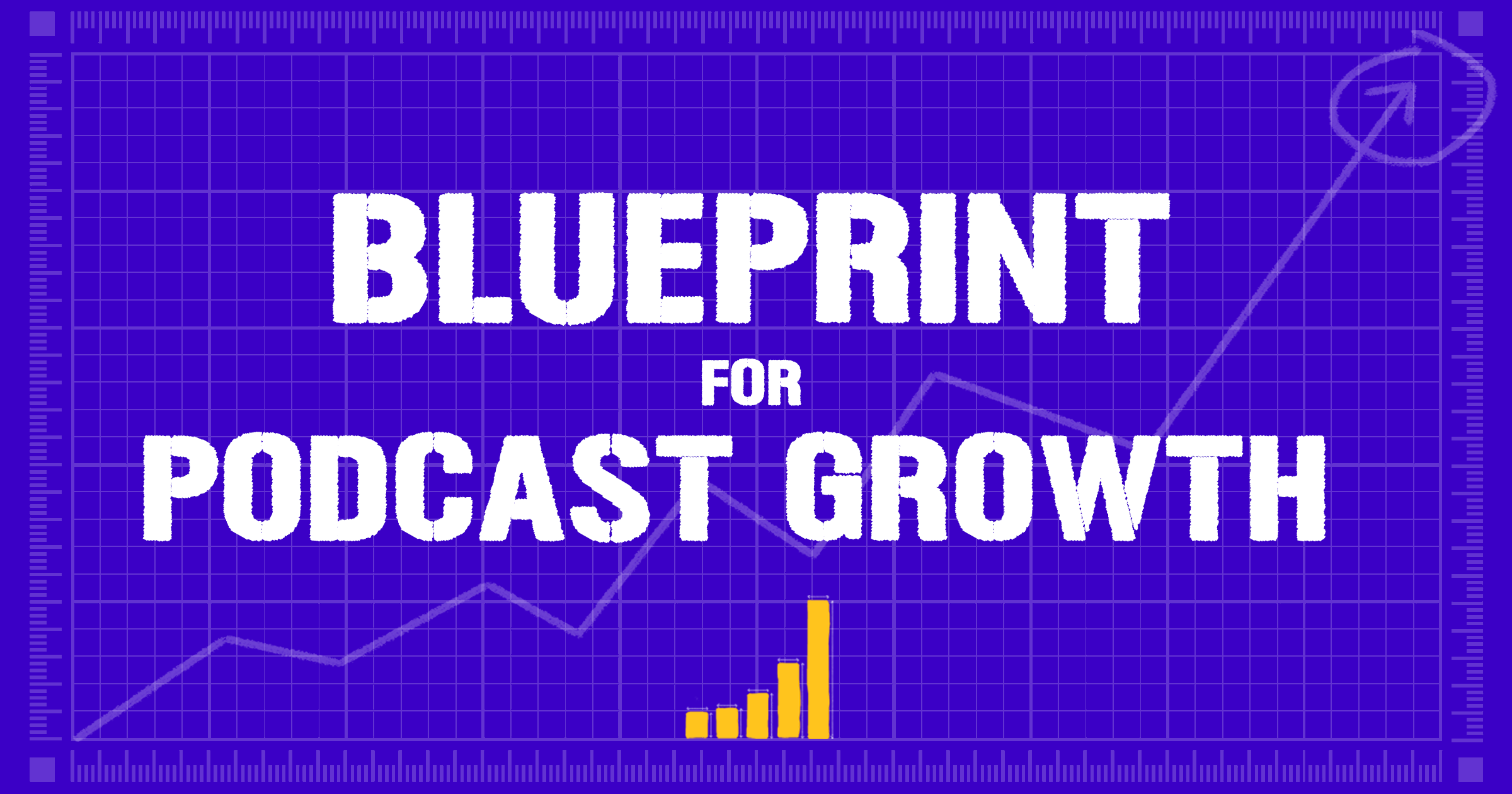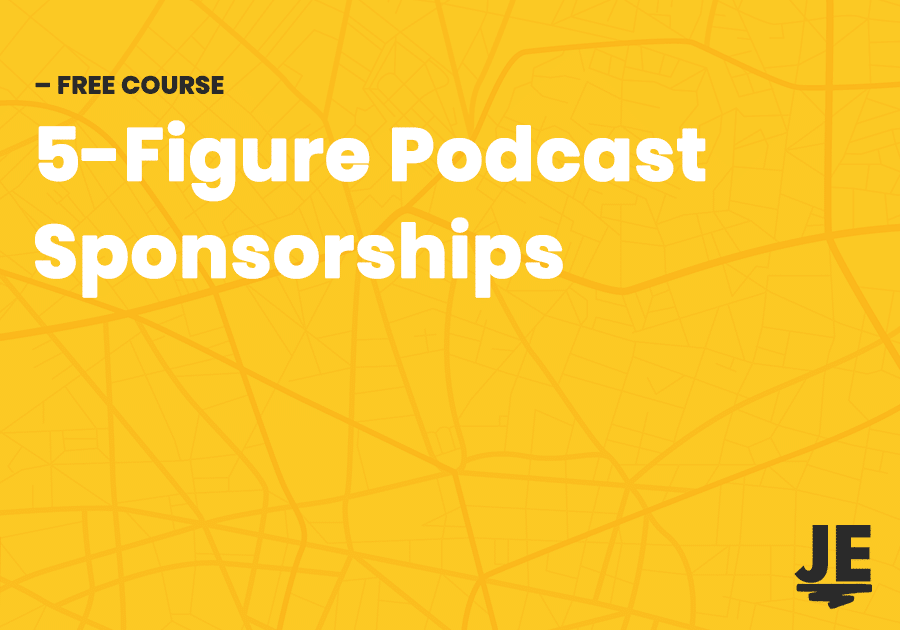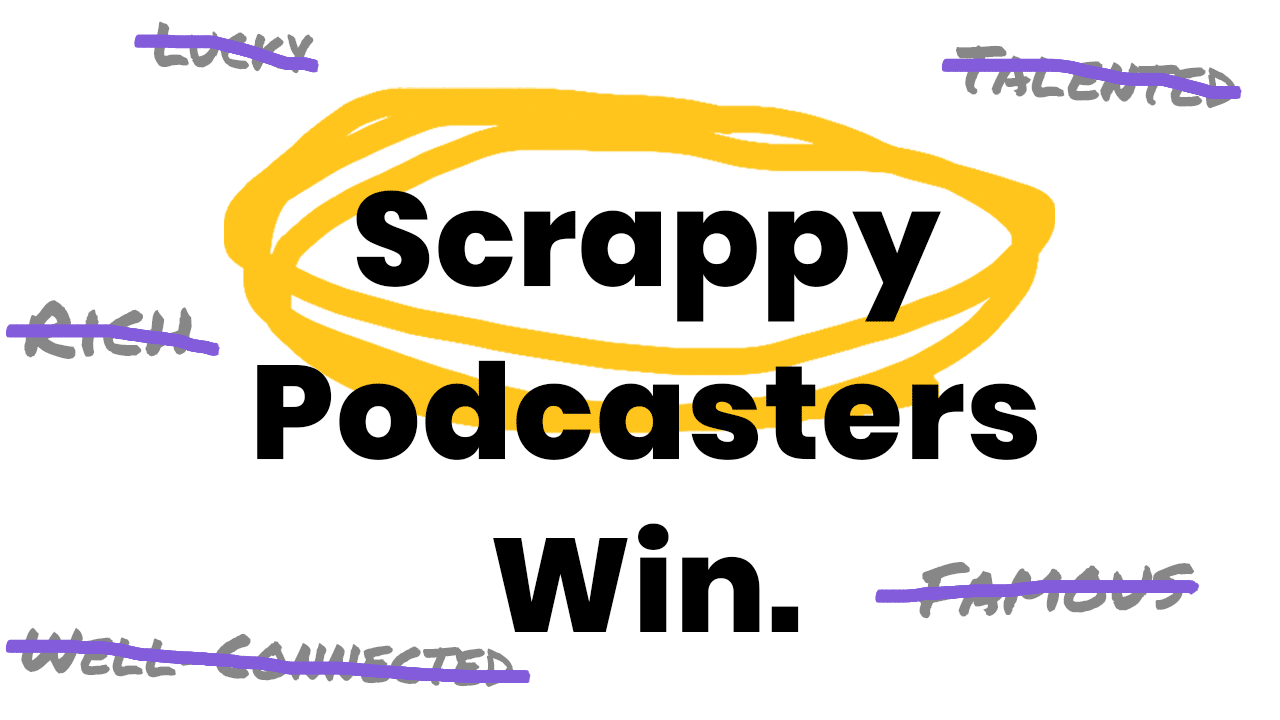If you’re trying to make a living by based on using your podcast to sell something, a product, service, business, or art, you’ve probably witnessed your share of less-talented creators getting more recognition, more credit, and more income than you.
It’s easy to rail against the injustice of it all, to become bitter and retreat to your lair to lick your wounds and work on making your show even better that can’t possibly be ignored.
But here’s the deal. The quality of your work is not the problem. It’s probably far, far better than good enough, for at least a handful of people. Your competition has already proven that.
Instead, you might be suffering one (or more) of six common reasons creators don’t get the credit or sales they deserve.
1. They Think Sales + Marketing Are Dirty Words
The bane of every creator’s existence!
Countless creators have relegated themselves to obscurity due to their inability to bring themselves to actually take the lead on promoting their work.
None of us wants to feel like a slimy salesperson. And since you’ve probably spent little to no time studying and learning anything about marketing and sales, the stereotypical used car salesman or telemarketer might be your most obvious references to what selling and marketing look like.
Sure, these examples are one way of promoting your offer, but they’re far from the only one.
Real marketing is based on connecting with other people and building genuine relationships, nothing more than that.
So toss your old hangups around self-promotion and start learning how to market and sell yourself in a more human way.
But first, you’re going to need to tackle your mindset.
2. They’re Caught Up In Limiting Beliefs About What It Means To Be A Creative
Often, negative thoughts around self-promotion are tied into a broader view of what it means to be a true creative, a real artist with your work.
That ideal may involve spending vast amounts of time alone on mountaintops communing with the elements, drug-fueled journeys of exploration into your inner psyche that break down the walls of reality, or maybe just an adamant belief that your work should speak for (and sell) itself, but not sell too much, cuz then you might be labeled as a sellout…
This is the mindset of an amateur.
Too many creators construct their identity entirely around the ascetic ideal of the starving artist, convinced that their greatest work can only be unlocked through deprivation and suffering.
If you believe in the work you do, however, and the potential it holds to impact and change people, you owe it to them, yourself, and the world to break your limiting beliefs and show up bigger and more generously.
If you get paid for your work, great. You can put that towards creating more, better work.
3. They Don’t Know Who Their Audience Is
Many creators who bust out of their limiting beliefs decide they’re now ready to promote their work but soon find that they don’t actually know who their audience is.
If you’ve been creating solely for yourself, you may have produced objectively good work, maybe even great work.
But without creating it for any audience in particular, you’re now going to have to do the hard work of finding an audience who will simply engage with it, if not pay for it. This audience might exist, but it just as well might not.
Better to start with a small, specific audience in mind and build something based on what they’re already asking for. You can still insert your art, your creativity, your personality into the finished product, but you now have a waiting audience that’s predisposed to buy your work when it’s ready.
It’s a good trade-off.
4. They Think Marketing Is Just About Getting Eyeballs On Their Work
One of the most common misconceptions about marketing is that it’s simply about getting eyeballs on your product.
Years of mass media brand advertising have conditioned us to think this way, but that’s not going to work for you, and that’s not what effective marketing means today.
For people like you, who create things for a small, specific group of people, effective marketing means finding those people and introducing yourself to them.
It means starting a conversation, building a relationship by showing up generously and consistently and earning your audience’s trust over time.
This type of marketing is slow. This type of marketing takes commitment. This type of marketing requires empathy for those you’re looking to serve.
But this type of marketing creates relationships that outlast marketing trends, fads, tools and strategies.
This type of marketing is about building fans for life.
5. They Don’t Know How To Talk About Their Work
Before building relationships with your audience, however, you need to know how to talk about your work.
Many creators get stuck talking about what the work is, its features, its technology, its construction.
Some members of your audience might care about these elements to some extent, but none of these are what convinces someone to engage with or to purchase your work.
Instead, you need to be focusing on selling the benefits of your offer. How will it help your people? What problem will it solve for them?
What is your work actually for?
Think about the last time you signed up for a new software service.
Did you research what coding language was used to build it? Did you look where they hosted their site? Did they display any of that information prominently on their sales page?
My guess is that if they did, you, like most people would see that, feel intimidated, be unclear as to how the software would actually help you, and leave to find another solution elsewhere.
Get really clear on how the work you create actually, tangibly benefits people and build an easy to digest story around the transformation that is possible by engaging in your work.
6. They Don’t Understand The Concept Of Front End vs. Back End
This last point is all about monetization, and the misconception that many podcasters have about how the hell they’re actually supposed to get paid for their work, and the role of their content in that equation.
Podcasters often rush to try and monetize every piece of content they put out, be that seeking out sponsors for their shows, throwing in vague affiliate offers, or covering their show notes pages with Google Ads.
Sure, these might bring in some income if you get enough traffic, but most of us will never get to the level where we can make a living off of advertisements and sponsorships alone. Even if we did, I would advise against putting all your eggs in that one, very capricious basket.
Instead, approach the content you create as marketing — or relationship building — material that allows you to start and continue a conversation with your audience, prove your bona fides, earn their trust, and ultimately funnel them back to your paid products.
This is the concept of front end vs back end.
Think about your phone.
It’s got a touchscreen (probably), maybe some buttons and through these inputs, you’re able to interact with your phone and the interfaces of the apps you use.
This is all the front end. It’s what you see, engage with and has a huge impact of your experience with the product.
But behind the front end, behind the user inputs and interfaces is the back end. The computing, the programming, the technology that connects your phone to every other phone on the planet.
While the front end is tangible, it’s easy to see and interact with, it’s the back end where the real power is, this is what you’re really buying when you buy a phone.
The front end is little more than a shell for everything the powerful back end allows you to do. It entices you with features and styling as a way to engage you more easily with the back end.
This is how to think about your business and podcast.
Capture attention with your front end, your podcast, and then move your audience towards engaging with your back end, where you sell your products and services.
The bonus is that if you get good enough at building meaningful relationships with your audience, you’ll find that the sponsorships and advertisers start coming out of the woodwork on their own if that’s something you’re looking for.
Shifting Your Mindset
Most creators are not held back from the recognition they deserve because their work, their product, their service isn’t good enough.
Most creators are held back by mindset shifts, that, once made can drastically shift how they create and promote their offers, and build lasting relationships with people who are willing to engage with their work.
Do the hard work to shift your mindset and get the attention your work deserves.
- Why Wouldn’t They Just Google It? - March 14, 2021
- Before You Can Market Your Podcast, You Need To Create A Marketable Podcast - March 11, 2021
- Podcast Promotion & Marketing Are Different (Here’s How to Use Each Effectively) - March 10, 2021




